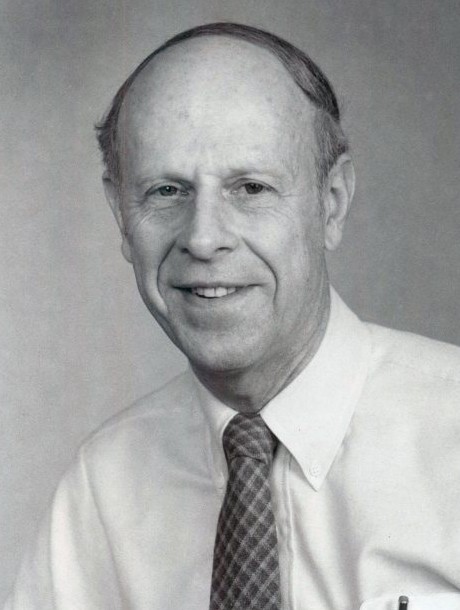Toxicology expert Donald Lisk dies at 88
By Krishna Ramanujan
Donald J. Lisk, M.S. ’54, Ph.D. ’56, professor emeritus of soil chemistry and toxicology and a champion of graduate education, died April 27. He was 88.
A former director of Cornell’s Toxic Chemicals Laboratory, Lisk was known for his work analyzing pesticides – including DDT – in soils, plants and animals; the toxic effects of chemicals on occupationally exposed populations; and the effects of diet on inhibiting cancer.
“Although Don was primarily a researcher, he was committed to graduate students and, upon his retirement, left a substantial amount of unrestricted funds to the Department of Horticulture to support graduate education,” said Marvin Pritts, professor of horticulture. “Don was always willing to take time to learn about what others were doing and share exciting findings from his own work.”
Raised in Buffalo, New York, Lisk earned his bachelor’s degree in chemistry at the University at Buffalo in 1952, before earning his master’s and doctorate in soil chemistry from Cornell. In 1956, he joined Cornell’s faculty as a pesticide residue chemist in the Department of Entomology but was soon appointed director of the Pesticide Residue Research Laboratory, later renamed the Toxic Chemicals Laboratory.
Also in 1956, he was named assistant professor of pesticidal chemistry, and was granted tenure in 1961. His departmental affiliations shifted from entomology to food science, and to the Department of Vegetable Crops.
He retired as a professor emeritus in 1995 from the Department of Fruit and Vegetable Science.
Retirement did not slow Lisk down. A post-retirement rehire agreement allowed him to continue to lead the Toxic Chemicals Laboratory, and he worked as a faculty member in the fruit and vegetable science department until 1999. From 2002-04, he conducted research with colleagues in the Department of Horticulture, which is now an integral Section of the School of Integrative Plant Science.
Lisk studied the fate of heavy metals and industrial toxicants in plants and foraging animals from the use of waste material in agriculture; the fate of pesticides in soils, plants and animals; measurements of toxic effects in occupationally exposed populations; and the cancer-prevention value of garlic, onions and foods high in selenium. He was an author of close to 500 published studies.
“He was particularly interested in the relationship among horticultural practices, pesticide use and cancer incidence, having strong collaborations with the Roswell Park Cancer Center in Buffalo,” Pritts said.
Along with advising and mentoring many students over his career, Lisk was a reviewer for the National Institutes of Health, the National Institutes of Environmental Health Sciences, the Environmental Protection Agency and the National Library of Medicine. He served as a consultant to review panels for the National Academy of Sciences, the Exxon Research and Engineering Co., and General Electric Co.
Lisk is survived by his wife, Nanette, and four children.
Calling hours are May 10 from 4-6 p.m. at Perkins Funeral Home, 55 Main St., Dryden, New York. A funeral Mass will be held May 11 at 11 a.m. at Holy Cross Church, 375 George Road, Freeville, New York. Burial will follow in Willow Glen Cemetery.
Media Contact
Get Cornell news delivered right to your inbox.
Subscribe

